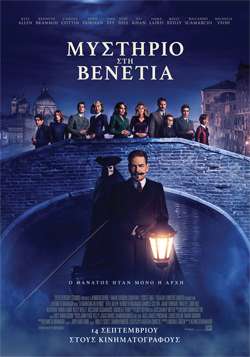by Takis Garis (@takisgaris)
Episode 12 Some Age, Others Mature (Sean Connery, 82)
CAESAR MUST DIE (7/10)
…and ye shall know the truth, and the truth shall set you free. ... Romans 6:20
What is cinema? Anti-mimesis, as sublimely juxtaposed against Aristotelian mimesis by Oscar Wild in his seminal The Decay of Lying platonic essay. It’s reconstruction of reality, by means of breaking free from conventional matter-of-factness. Hence, life imitates art, as suggested eloquently by J.G. Ballard, 1995: “We live inside an enormous novel. It is now less and less necessary for the writer to invent the fictional content of his novel. The fiction is already there. The writer’s task is to invent reality.” It doesn’t feel a bit exaggerated to hold that the octogenarians Paolo and Vittorio Taviani are aptly realising this theorem in a virgin artistic sense with Caesar Must Die. According to their beloved Luigi Pirandello, whose five short stories have stunningly formed into their definitive masterpiece Kaos (1984), “it is so, if you think so”. So how would it be like to gather a bunch of inmates, most of them serving for life in the maximum-security of Rebibbia Prison (Italy) and stage a play rendition of Shakespeare’s Julius Caesar? Meaning, how would it feel like for you, equally as how would it feel like to them?
…and ye shall know the truth, and the truth shall set you free. ... Romans 6:20
What is cinema? Anti-mimesis, as sublimely juxtaposed against Aristotelian mimesis by Oscar Wild in his seminal The Decay of Lying platonic essay. It’s reconstruction of reality, by means of breaking free from conventional matter-of-factness. Hence, life imitates art, as suggested eloquently by J.G. Ballard, 1995: “We live inside an enormous novel. It is now less and less necessary for the writer to invent the fictional content of his novel. The fiction is already there. The writer’s task is to invent reality.” It doesn’t feel a bit exaggerated to hold that the octogenarians Paolo and Vittorio Taviani are aptly realising this theorem in a virgin artistic sense with Caesar Must Die. According to their beloved Luigi Pirandello, whose five short stories have stunningly formed into their definitive masterpiece Kaos (1984), “it is so, if you think so”. So how would it be like to gather a bunch of inmates, most of them serving for life in the maximum-security of Rebibbia Prison (Italy) and stage a play rendition of Shakespeare’s Julius Caesar? Meaning, how would it feel like for you, equally as how would it feel like to them?

Is it a mere docudrama? Where does the real acting end and the harshly, monotonous incarceration routine begin? Is this an interval amidst eternal suffering in Dante’s Inferno or a windfall that is meant to transform their lives ever since? Both possibilities coexist, as Salvatore Striano (Brutus) turned into a successful actor, also staring in Matteo Garrone’s Gomorrah (2008). It was in 2006 that this inspired project took life, as director Fabio Cavalli rehearsed some openly improvisational sessions with his convicts / actors to often times impressive results. The final product is triumphant as we witness twice, already in the opening scene as well as by the end of this minute (roughly 73 min) film, to pinpoint the dramatic effect that the experience had in cast’s lifeless jail time. Both rendered in color, in contrast with overall chiaroscuro by first time DP but experienced Tavianis’ collaborator (Resurrezione, 2001) Simone Zampagni.
Before the Coens and the Dardennes or the recent bubble gum Wachowski… Starship, there have always been the Tavianis. Subtle, deeply humane, facial features and confined spaces impeccably shot. No fancy camera moves, no melodramatic narrative stretches. You have to think for yourself buddy. Who’s free, who’s doing time, what’s real, what art does to criminal minds and then…the curtain is down. Caesar must die. But what a life did he live, for a brief yet glorious time. For that purity of artistic manna, masters Vittorio and Paolo, you made me your eternal prisoner.
Note: Caesar Must Die is the 2012 Golden Bear winner of Berlin Film Festival and Italy’s official submission at the Oscars, in the best foreign language film category.
TROUBLE WITH THE CURVE (4/10)
Trouble With The Clint
It’s hard to play it tough with the iconic figure of American machismo in Hollywood, especially when, at his 82, he’s being bold enough to expose himself in front of the camera, defying all rules of geriatrics. That being said, there’s an entirely different story when it comes to embarrassingly awkward moments such as smearing at a make - believe - Obama empty chair at the recent Republican National Convention, or even worse so, coming back from acting obscurity (his self-retirement since 2008’s republican manifesto Gran Torino) to rehearse, well, the cranky, grouchy, crusty and cantankerous Grand Torino turn. First on camera appearance in a film other than himself directing since 1993’s In the Line of Fire. Clint is also the producer, hiring his assistant director/producing partner Robert Laurenz for this baseball scout going out of sight (literally) story about Gus Lobel (Clint Eastwood), the Atlanta Braves seasoned talent-discoverer who can actually hear a good batter/hitter from miles away. His ingenious, semi-estranged, workaholic attorney of a daughter Mickey (Amy Adams) proves she’s equally knowledgeable of the sport, when hitting a home run, by finding a phenomenal athlete selling peanuts at the North Carolina stadium, just when things seem to go downhill concerning: a. Gus’s glaucoma, b. her promotion she loses to support her father, c. her romantic life that gets reignited by former baseball player (yeah, Gus knows talent) turned into scout (so Gus’s rival, but never really so) and aspiring sports caster Johnny –the flame-Flanagan (neutrally played by charmer Justin Timberlake).
Before the Coens and the Dardennes or the recent bubble gum Wachowski… Starship, there have always been the Tavianis. Subtle, deeply humane, facial features and confined spaces impeccably shot. No fancy camera moves, no melodramatic narrative stretches. You have to think for yourself buddy. Who’s free, who’s doing time, what’s real, what art does to criminal minds and then…the curtain is down. Caesar must die. But what a life did he live, for a brief yet glorious time. For that purity of artistic manna, masters Vittorio and Paolo, you made me your eternal prisoner.
Note: Caesar Must Die is the 2012 Golden Bear winner of Berlin Film Festival and Italy’s official submission at the Oscars, in the best foreign language film category.
TROUBLE WITH THE CURVE (4/10)
Trouble With The Clint
It’s hard to play it tough with the iconic figure of American machismo in Hollywood, especially when, at his 82, he’s being bold enough to expose himself in front of the camera, defying all rules of geriatrics. That being said, there’s an entirely different story when it comes to embarrassingly awkward moments such as smearing at a make - believe - Obama empty chair at the recent Republican National Convention, or even worse so, coming back from acting obscurity (his self-retirement since 2008’s republican manifesto Gran Torino) to rehearse, well, the cranky, grouchy, crusty and cantankerous Grand Torino turn. First on camera appearance in a film other than himself directing since 1993’s In the Line of Fire. Clint is also the producer, hiring his assistant director/producing partner Robert Laurenz for this baseball scout going out of sight (literally) story about Gus Lobel (Clint Eastwood), the Atlanta Braves seasoned talent-discoverer who can actually hear a good batter/hitter from miles away. His ingenious, semi-estranged, workaholic attorney of a daughter Mickey (Amy Adams) proves she’s equally knowledgeable of the sport, when hitting a home run, by finding a phenomenal athlete selling peanuts at the North Carolina stadium, just when things seem to go downhill concerning: a. Gus’s glaucoma, b. her promotion she loses to support her father, c. her romantic life that gets reignited by former baseball player (yeah, Gus knows talent) turned into scout (so Gus’s rival, but never really so) and aspiring sports caster Johnny –the flame-Flanagan (neutrally played by charmer Justin Timberlake).
Oh boy, this Women’s Channel type - stinker of a sports movie, could really use some lessons from Moneyball about computer generated Billy Beane statistics vs old school scouting. There are moments of ludicrous melo, such as the graveyard scene, where the widower Gus is “sharing” beers with his late wife, singing “You are my Sunshine” in tears. Forced sentimentality, insipid chemistry between Adams and Timberlake and effective supporting turns by the ever reliable John Goodman (guess I must have written this a gazillion times before) and the greasy, stay-at-office stats guru of a scout, Mathew Lillard. Predictability lies in abundance here, while the only new Eastwood acting chops we see in display are Scott Eastwood (Clint’s son) ones, signifying his 4th appearance in a father’s film. What I really kept from this mediocre misfire is that pointy nosed Amy Adams is closer to her overambitious off-screen character here, as opposed to her adorable, sugar coated turn in her breakthrough role in Enchanted. Somehow I sense that her borderline dominatrix turn in brilliant The Master is not a real stretch as it pertains to her portrayal array. It is also plain to see how bad the youngest generation of thespians long to play alongside living legends of Eastwood’s grand esteem, even though that project is as boring as much it is inept like Trouble with the Curve. On the contrary, one would pray this will not be The Clint’s swan song as an actor. It would not do justice to his sprawling bloom of 57 - year film career.
gaRis
The Toronto Connection brought you by DENON








0 σχόλια:
Δημοσίευση σχολίου
Η δική σου κριτική